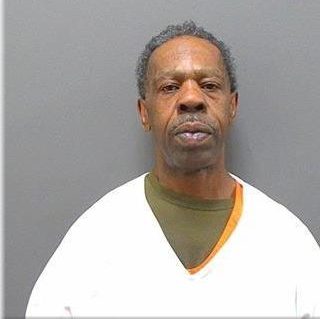Court seems split on when to apply new sentences
By: Associated Press//April 17, 2012//
By Jesse J. Holland
Associated Press
Washington – The Supreme Court seemed split Tuesday on whether criminals who were arrested but not yet sentenced for crack cocaine offenses should be able to take advantage of newly reduced sentences.
Corey A. Hill and Edward Dorsey were arrested in 2007 and 2008 for selling crack cocaine and faced mandatory 10-year sentences in Illinois. However, the men were not sentenced until after the Fair Sentencing Act went into effect in August 2010. That law reduces the difference between sentences for crimes committed by crack cocaine and powder cocaine users.
The men argued on appeal that because their sentences came after the law’s effective date, they should get its lesser prison time. The 7th U.S. Circuit Court of Appeals in Chicago disagreed, and they appealed to the Supreme Court.
- The Supreme Court likely to preserve a gun law protecting domestic violence victims
- Marquette Law School national survey finds U.S. Supreme Court approval remains below 50%
- Wisconsin GOP lawmakers propose nonpartisan redistricting ahead of 2024 election to preempt Supreme Court tossing maps
- Senators call for Supreme Court to follow ethics code
- Law students offered therapy in wake of recent US Supreme Court rulings
Their lawyer argued to the justices that Congress would not have then expected judges to use outdated laws to sentence people, knowing it was about to change. “Why would Congress want district courts to continue to impose sentences that were universally viewed as unfair and racially discriminatory?” lawyer Stephen Eberhardt said.
Several justices questioned whether Congress made it clear when it wrote the law that the Fair Sentencing Act was intended to be retroactive. But Justice Department lawyer Michael Dreeben said there were no “magic words” for Congress to use in the law to make its intention clear.
“To impose a sentence under outmoded guidelines will foster irrationality in sentencing and would be contrary to the goal of consistency in sentencing,” Dreeben said.
The Justice Department originally argued that the men should not get the lesser sentences but changed its mind before the case made it to the Supreme Court.
Several of the justices noted how controversial the crack cocaine sentencing laws were. “I’ve been a judge for nearly 20 years, and I don’t know that there’s one law that has created more controversy or more discussion about its racial impact than this one,” said Justice Sonia Sotomayor.
But Justice Antonin Scalia said they can’t let the controversial aspect of the law weigh on their decision. “Let’s talk about text, not … about the emotions of Congress,” he said.
Lawyer Miguel Estrada, invited by the court to defend the appeal court’s decision, noted that allowing Hill and Dorsey to use the new sentencing structure and not others may not be fair.
“People who committed the same offense on the same date and may have done so with each other, we would expect to get comparable punishment if they were comparably situated as to criminal history, and the solution that’s being urged undermines that,” he said.
“But you have to draw a line someplace and that’s inevitable that some people are going to fall on one side,” Justice Ruth Bader Ginsburg said.
Justices will make a ruling before the end of June.
Legal News
- FBI launches criminal investigation into Key Bridge collapse
- Man charged in slaying after woman’s leg found at Milwaukee-area park
- Minnesota man guilty in fatal stabbing of teen on Wisconsin river, jury finds
- Wisconsin teen sentenced in bonfire explosion that burned at least 17
- Wisconsin man who broke into home, ate victim’s chicken, slept in victim’s bed, receives prison and jail sentences
- Judge refuses to dismiss Hunter Biden’s gun case
- House passes reauthorization of key US surveillance program after days of upheaval over changes
- Milwaukee Police officer traveling to Georgia training retires before facing discipline
- Evers to ask legislature to approve largest increase in state support for UW System in two decades
- 7th Circuit Court of Appeals proposes new rules
- Federal agencies allege toxic work environment for women in new report
- Wisconsin man sentenced for sex trafficking a woman and a minor online
WLJ People
- Power 30 Personal Injury Attorneys – Russell Nicolet
- Power 30 Personal Injury Attorneys – Benjamin Nicolet
- Power 30 Personal Injury Attorneys – Dustin T. Woehl
- Power 30 Personal Injury Attorneys – Katherine Metzger
- Power 30 Personal Injury Attorneys – Joseph Ryan
- Power 30 Personal Injury Attorneys – James M. Ryan
- Power 30 Personal Injury Attorneys – Dana Wachs
- Power 30 Personal Injury Attorneys – Mark L. Thomsen
- Power 30 Personal Injury Attorneys – Matthew Lein
- Power 30 Personal Injury Attorneys – Jeffrey A. Pitman
- Power 30 Personal Injury Attorneys – William Pemberton
- Power 30 Personal Injury Attorneys – Howard S. Sicula











